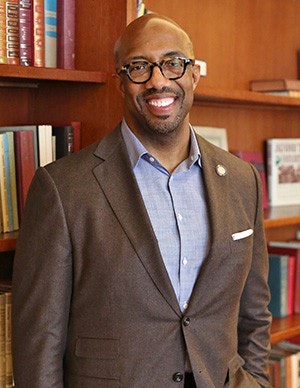Even as many colleges are struggling to figure out what the beginning of the new academic year will look like, a few have made public schedules for the next semester that already account for another wave of COVID-19 infections in the fall, which epidemiologists have said is more or less inevitable.
The colleges that have made plans anticipating the next wave of infection have scheduled one or a combination of measures that include opening earlier than usual — or in one case, later than usual — for the fall; foregoing or shortening the fall break; ending in-person classes at Thanksgiving and moving to remote instruction after; and even altering the spring 2021 semester.
The intention is to reduce mass travel during the brief fall break and then a return to campus after, which could lead to a spike in infections. Institutions want to eliminate in-person interactions after the Thanksgiving break for the same reason.
Several public health experts have said a whole new set of COVID-19 infections can be expected in the fall and winter. Dr. Robert Redfield, director of the Centers for Disease Control and Prevention (CDC), told the Financial Times this week that he is concerned about a second wave in the northern hemisphere, which he sees at the end of 2020. “We’ve seen evidence that the concerns it would go south in the southern hemisphere like flu (are coming true), and you’re seeing what’s happening in Brazil now,” Redfield said. “And then when the southern hemisphere is over, I suspect it will reground itself in the north.”
Dr. Anthony Fauci, a key member of the president’s coronavirus task force, has spoken similarly.
“I’m almost certain it will come back, because the virus is so transmissible and it’s globally spread,” said Fauci during an Economic Club of Washington webinar late last month, reported The Hill and other publications.
 Dr. Anthony Fauci
Dr. Anthony FauciDr. Greg Poland, a professor of medicine and infectious diseases at the Mayo Clinic, said COVID-19 will likely follow the pattern of older coronaviruses that peak in the winter months, reported CNN. “Often, not always … often the second wave of a pandemic is worse,” Poland said.
The University of South Carolina on Sunday announced tweaks to its college reopening plans keeping in mind what epidemiologists are saying about another wave of COVID-19. The university, which has a little over 34,000 students, will reopen for classes Aug. 20; cancel the Oct. 15-16 fall break; end face-to-face instruction Nov. 24 before the Thanksgiving break; resume instruction but remotely after the break; and hold remote exams in December. The university’s semester ends Dec. 14.
“… the public health risks associated with thousands of students and faculty returning to campus after Fall Break travels could be significant for the campus and Columbia communities and could jeopardize the continuation of the semester,” wrote the university’s president, Bob Caslen, in a message to the community on May 17. “I realize that students and faculty look forward to getting away and recharging in the middle of the semester, and I appreciate that many of you will not be pleased with the decision to cancel Fall Break.”
The university canceled fall break to ensure no student travels and returns infected, and it decided to stay remote after its four-day Thanksgiving break for the same reason, especially as epidemiologists warn about increased infections in the winter.
“… our best current modelling predicts a spike in cases of COVID-19 at the beginning of December, which also will likely coincide with traditional flu season,” Caslen said.
 Bob Caslen
Bob CaslenThe university hasn’t publicly announced what it plans to do after the December break.
Meanwhile, the University of Notre Dame said on Monday that it is ending its fall semester at Thanksgiving, but to make up for instruction days lost, it is not only canceling fall break, it will also start the semester two weeks early, on Aug. 10 instead of Aug. 24. The Indiana-based university, which has a little over 12,000 students, consulted with a team of medical specialists from the Cleveland Clinic and members of several institutions’ infectious disease departments, including county health officials.
“Bringing our students back is in effect assembling a small city of people from many parts of the nation and the world, who may bring with them pathogens to which they have been exposed. We recognize the challenge, but we believe it is one we can meet,” said Rev. John Jenkins, president of Notre Dame, in a message to the campus community.
Jenkins also said the Indiana-based university will “alter plans should a serious outbreak occur.”
Similarly, Creighton University will also begin its fall term earlier than usual, starting Aug. 17, and will cancel fall break. And because of “concerns about a second wave of the virus during the traditional beginning of the flu season in late November or December,” the Omaha, Nebraska-based university will complete most in-person, on-campus learning for the semester by Nov. 25, the day before Thanksgiving.
 Rev. Daniel S. Hendrickson
Rev. Daniel S. HendricksonRev. Daniel S. Hendrickson, Creighton’s president, said in a statement that it’s important to note “we will be flexible and adaptable in our planning and decision-making, as we continue to monitor and respond to international, national, state, and local public health conditions, recommendations, and guidelines.”
On Tuesday, when announcing similar plans, the University of Portland also said its plans aren’t set in stone.
“There are many variables still beyond our control, including directives from local, state, and national health authorities that could potentially cause us to reconsider our plans,” said Rev. Mark L. Poorman, the university’s president, in a statement.
The University of Portland announced it is canceling fall break and ending in-person instruction by Wednesday Nov. 25, ahead of Thanksgiving. Students won’t return to campus after the Thanksgiving break and exams Nov. 30-Dec. 3 will be held online.
Regis and Rice universities have announced similar abbreviated fall plans.
Meanwhile, Marquette University has announced tentative plans for spring 2021 as well. In addition to ending the fall semester before Thanksgiving and moving exams online, the Milwaukee, Wisconsin-based university, which has close to 12,000 students, said it will begin the spring 2021 semester a week later than usual, on Jan. 25, “to maximize the amount of time students are away from campus and out of residence halls,” and in case some students need to stay home longer due to COVID-19-related emergencies.
It, too, included a caveat in its announcement, about plans being subject to change.
“As we shared last month, any of our plans may need to change based on government and medical official guidelines, so we ask for your continued patience and flexibility,” said Dr. Kimo Ah Yun,
 Dr. Kimo Ah Yun
Dr. Kimo Ah Yunprovost and executive vice president for academic affairs at Marquette, in a statement. “If future guidance requires a different action, be assured that the safety of our students, faculty and staff will be the most important factor in our decisions.”
Still, many institutions that have said they will open as normal for the fall, with in-person instruction and as residential campuses. Most colleges stated they will institute safety protocols including distancing in classes and in dorms. Others have said they will open but subject to their state’s executive orders, leaving them some wriggle room. And yet others have planned for a hybrid model, that is, a combination of in-person and remote instruction. Then there’s the California State University system, which categorically said it will, for the most, part stay online through the fall. California Community Colleges indicated it might well do the same.
But plans can change, be altered, or tweaked on a dime, in this age of uncertainty.
Take the case of Purdue University. The Indiana-based institution, with 43,000 students, announced as early as April 21 that it would reopen as normal in the fall, prompting even President Donald Trump to laud its decision. The university said last month it is “determined not to surrender helplessly” to difficulties created by the pandemic.
On May 7, though, the university said it will eliminate the fall break, end in-person instruction by Thanksgiving and continue the rest of the semester remotely.
“This was done to minimize the mass exit and return of students these breaks created,” said Dr. Jay T. Akridge, Purdue’s provost and executive vice president for academic affairs and diversity, in a statement.
Meanwhile, at least one institution, Ithaca College, is planning to start the fall semester later than usual, on Oct. 5, saying it is taking more time to prepare a safer campus and ready a more effective educational experience.
“As time passes, I know that other institutions and schools may announce that they are planning to open the fall semester sooner than we are,” said Dr. Shirley M. Collado, Ithaca’s president, in a statement. “But by putting a stake in the ground — right now — for an October 5 start at Ithaca College, we are intentionally delivering necessary time for all of us to plan, prepare, and thoughtfully align toward a common goal as this public health crisis continues to evolve.”
 Dr. Shirley M. Collado
Dr. Shirley M. ColladoCollado also said the plan to open the New York college later has been informed by recommendations from several national and state organizations, including the CDC; the National Association of Independent Colleges and Universities; the American Council on Education; the Commission on Independent Colleges and Universities of New York; and the New York Forward Re-Opening Advisory Board and its Restart Plan for Higher Education Task Force.
While Trump has said he wants everyone to return to colleges and universities in the fall, some public health experts and academics aren’t on board with the idea.
At a Senate hearing on May 12, Tennessee Sen. Lamar Alexander (R) asked Fauci to look three months ahead and talk about what he foresees in terms of a treatment or a vaccine for COVID-19.
“What would you say to the chancellor of the University of Tennessee Knoxville or the principal of the public school about how to persuade parents and students how to return to school in August?” asked Alexander.
Fauci’s reply: “I would be very realistic with the chancellor and tell her that in this case, that the idea of having treatments available, or a vaccine, to facilitate the reentry of students into the fall term would be something of a bit of a bridge too far.”
Meanwhile, Dr. Michael J. Sorrell, president of Paul Quinn College, an historically Black institution, said colleges and universities are “deluding themselves” about getting students back to campuses in the fall amid the COVID-19 pandemic.
 Dr. Michael J. Sorrell
Dr. Michael J. SorrellIn a May 19 article in The Atlantic, Sorrell said higher education institutions “are letting their financial and reputational worries cloud their judgment” about when it is safe to reopen campuses like normal.
“… rushing to reopen our society and our schools is a mistake that will ultimately result in hundreds of thousands of citizens falling sick and worse,” wrote Sorrell. “In this environment, we face fair questions about higher education’s business model, cost, and long-term prospects — and about whom higher education ultimately serves. Do we serve the students and families who appear at our doors each fall full of hope and faith? Or does self-preservation come first?”


















